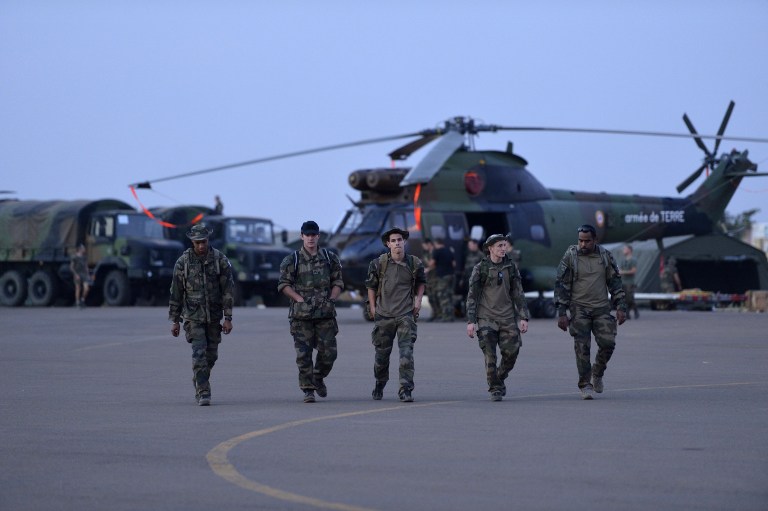SUMMARY
This is AI generated summarization, which may have errors. For context, always refer to the full article.

BAMAKO, Mali – Hunger, dwindling resources and a determination to sow chaos across Mali were driving forces behind the sudden insurgent push south that triggered an ongoing French-led military response, experts say.
The triad of Al-Qaeda-linked Islamist groups who have controlled Mali’s vast desert north since April know their few thousand fighters and pick-up trucks are insufficient to control the sprawling country or its capital Bamako, they say.
But a growing desperation and shrinking reserves forced the Islamists to advance deeper into the government-controlled south, said an expert on Mali who, like many people discussing security in West Africa, asked for anonymity.
“The bearded men are not administrators. There is nothing more left in the north, no more flocks of cattle, not enough cereal. The ransoms from hostages held by them are not coming through,” he said.
“It’s the logic of the predators of the desert: they hope to steal cattle, Toyotas, pillage towns, banks and even gold at the central bank if they are not stopped before Bamako.”
The crisis began when the Tuaregs, a Berber people who have lived a nomadic lifestyle in the region for 2,000 years, launched a rebellion a year ago and humiliated the Malian army, triggering a military coup in Bamako.
In the ensuing political vacuum, the central government lost control of the north to the insurgents, and the Tuaregs were instrumental in helping groups such as Al Qaeda in the Islamic Maghreb (AQIM) seize control of huge swathes of territory.
But the Tuaregs’ alliance of convenience with the Islamists quickly disintegrated. AQIM and other Islamists began to run territories under their control like a particularly brutal medieval emirate and imposed sharia law.
Mali’s northern and southern neighbors Algeria and Burkina Faso have led efforts to try to launch peace talks between rival Tuareg groups to get them to cut all ties with radical Islamists such as AQIM.
“The aim of this offensive is to thwart on the ground the possibility of such negotiations,” an informed observer said in Bamako, speaking on condition of anonymity.
Adding further chaos to the complex situation is Algeria’s refusal to contribute troops to an African force, pegged at some 6,000 in all.
But Algiers subsequently decided to open its airspace to French fighter jets battling the Islamists.
An expert said Algiers had now realized its folly in believing that it had the Ansar Dine (Defenders of the Faith) movement, led by a former Tuareg rebel, under control.
“The Algerians who thought they had the Ansar Dine on a tight leash saw them break the chains and bite them. They were furious. They said: ‘They will pay dearly,'” he said, adding that this explained the move to open the airspace.
Ansar Dine had explained its shock January 10 seizure of the central town of Konna, which sparked French military intervention, after months of status quo on the frontline as a move to pre-empt the deployment of an offensive led by Paris.
“We decided to attack towns like Konna to torpedo French plans to occupy strategic points in preparation of war,” it said in a statement.
A Western diplomat in Bamako, speaking on condition of anonymity, said the Islamists’ knew they could never really control the sprawling west African country or its capital with just a few thousand fighters.
“Even if they cannot proceed as far as Bamako and if they are stopped in Mopti (a central town), the shockwaves would be of such amplitude that with the dispersal of the army” the interim government could be brought to its knees, the diplomat said.
“What is certain is that the pressure would have been so great that another regime more favorable to them would have been installed,” he added.
Jean-Pierre Filiu, an expert in radical Islamists at the prestigious Sciences-Po university in Paris, said they had “underestimated the rapidness and the brutality of the French reaction.
“But that said, they will wait for us on a terrain over which they have perfect mastery over where they could dramatize the confrontation with an ‘infidel’ France,” he added. – Rappler.com
Add a comment
How does this make you feel?
There are no comments yet. Add your comment to start the conversation.